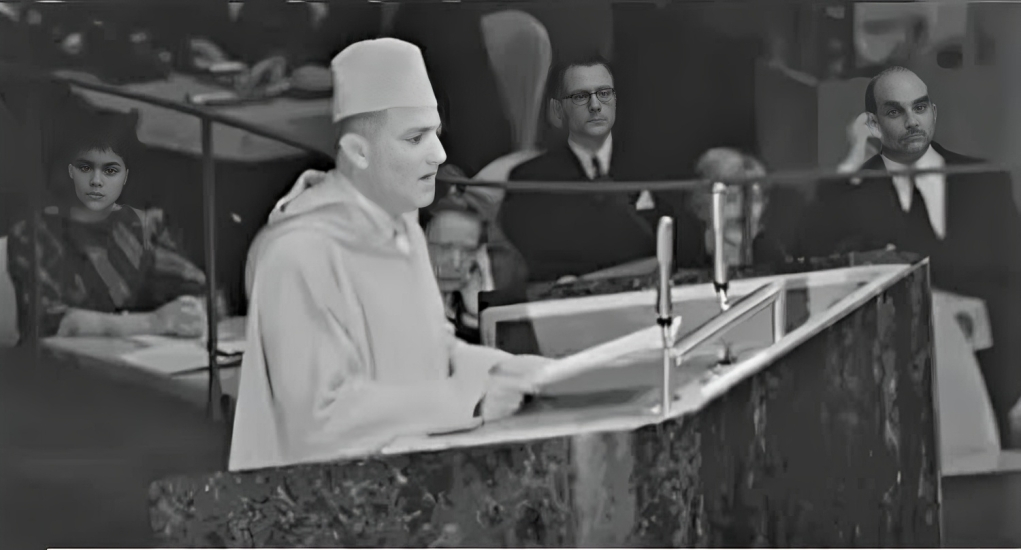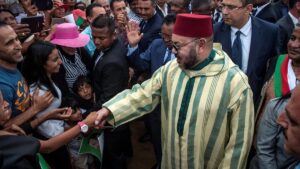When Morocco embraced the Algerian revolution: decisive and unlimited support

The outbreak of the Algerian Revolution on November 1, 1954, marked a pivotal moment in the history of the Maghreb's struggle against French colonialism. The Kingdom of Morocco, under the leadership of King Mohammed V, played a pivotal role in supporting this revolution politically, logistically, and diplomatically. After Morocco gained independence in 1956, its territory became a strategic depth for the National Liberation Front (FLN) revolutionaries. The Kingdom hosted FLN offices and facilitated the transit of weapons and fighters, in addition to financial, media, and political support in international forums. Morocco also provided the revolutionaries with a safe space for coordination and planning and contributed to mobilizing Arab, African, and international public opinion in favor of the Algerian cause. Despite being subjected to repeated French pressure, Morocco did not back down from its steadfast position of support for the revolution. Even the most ardent and hostile opponents cannot deny the substantial support provided by the Kingdom of Morocco to the Algerian Revolution, which reflects a sincere commitment to the principles of national liberation and the unity of the Maghreb destiny..
This official Moroccan support was most clearly demonstrated by the public stance of King Mohammed V, who explicitly expressed his solidarity with the Algerian people in his historic speech in Oujda on September 15, 1956, calling for a just and peaceful solution to the Algerian issue within the framework of Maghreb unity. This stance posed a direct challenge to French colonial policy, prompting it to respond aggressively by kidnapping the leaders of the Algerian revolution on October 23, 1956, while they were hosted by Morocco. King Mohammed V condemned this act, describing it as "piracy" and considering it a stab in the back of his national honor. He affirmed his rejection of any compromises that affected the Algerian issue. He even rejected a French oil deal in 1957 that included investments in occupied Algeria. Various components of Moroccan society, including newspapers, workers, and students, expressed their broad support for the Algerian revolution, affirming that Algeria's independence is a just cause for liberation that requires the full support of neighboring peoples and countries.
The strategic role of King Mohammed V in supporting the Algerian revolution.
This role reflects a set of policies and positions adopted by the Moroccan monarch, which transcended the boundaries of political or emotional solidarity to constitute actual and comprehensive support at the field and diplomatic levels. The king realized early on that Algeria's independence did not represent an isolated issue, but rather a natural extension of a comprehensive liberation project in North Africa. Therefore, he made Morocco a rear base for the Algerian revolution. He opened its borders to the mujahideen, provided them with a safe haven for organization and training, and contributed to securing weapons and equipment despite French threats. He also took bold diplomatic positions, most notably his public reception of the leaders of the National Liberation Front and his rejection of French pressure and deals that sought to dissuade him from supporting the revolution. This approach demonstrates that King Mohammed V's support was not a circumstantial response, but rather part of a strategic vision aimed at ending colonialism and building an independent Maghreb.
Manifestations of Moroccan support: political and field dimensions
Moroccan support for the Algerian revolution was not limited to symbolic statements or diplomatic stances, but rather took on a practical and comprehensive character, encompassing both political and field dimensions. Under the leadership of King Mohammed V, the Kingdom expressed its active involvement in the national liberation struggle by embracing the leaders of the revolution, providing logistical support, opening the eastern borders to the revolutionaries, offering them healthcare, and opening diplomatic fronts against French colonialism, in addition to offering popular and media support.
Political and diplomatic support for the leaders of the Algerian revolution
King Mohammed V's stances were characterized by clear and direct political support for the leaders of the National Liberation Front (FLN), evident in official and public receptions that reflected the depth of bilateral relations between Morocco and the Algerian Revolution. On February 6, 1957, the king received a delegation from the FLN in the Spanish capital, Madrid, including activist Ahmed Tawfiq al-Madani. Madani expressed his full support for the revolution, emphasizing that his position transcended ordinary support to the commitment of a committed mujahid. The king declared that "the weapons of the revolution circulate freely in Morocco," a statement with significant political and military implications. Direct communication continued between the leaders of the revolution and Moroccan officials, despite attempts by colonial agencies to sow discord and spread rumors to undermine the strength of the relationship between the two parties.
military and logistical support
Morocco provided crucial military and logistical support to the Algerian revolution. This support extended beyond opening the borders, but also included providing training grounds, receiving weapons and ammunition, and securing the passage of volunteers and fighters. One of the most notable manifestations of this support was the incident involving a ship loaded with weapons that docked in the port of Tangier. The king personally financed the shipment, saying, "I will not repay you for any favors... I will pay him the full price, as a personal contribution from me to the jihad." This reflects his deep and symbolic involvement in supporting the revolution.
Open borders and provide rear bases
Under the direct orders of King Mohammed V, Moroccan forces opened the eastern border to the mujahideen, and cities such as Oujda, Berkane, and Taza became major centers for training and arms transfer. Approximately 500 volunteers from Marrakesh were placed at the disposal of the Algerian National Liberation Army. The passage of foreign volunteers and military equipment through Moroccan territory was facilitated, contributing to strengthening the revolution's capabilities and effectiveness on the ground.
Innovation in logistical support and challenging the French blockade
Under the tightening French blockade, and with effective Moroccan support, the Algerian revolution developed innovative arms smuggling networks across Moroccan territory, using unconventional means such as fruit crates, pottery, and car fuel tanks. Moroccan authorities also contributed to providing healthcare to the wounded in their hospitals, providing a vital outlet for treating those injured from the battlefronts.
Diplomatic confrontation with France
Morocco entered into direct diplomatic confrontations with France over its support for the revolution. Paris filed formal complaints with the Security Council and planted mines and barbed wire along the border, but Morocco did not back down. Moroccan authorities also acceded to demands from the revolution's leaders to close the French consulates in Oujda and Bouarfa, citing the systematic harassment of Algerians.
Popular and media solidarity
Support extended to components of Moroccan civil society, with the national press expressing its full solidarity with the revolution and rejecting French campaigns aimed at distorting the Front's image. The Moroccan Student Union also contributed to embracing the Algerian cause, participating alongside their Algerian and Tunisian counterparts in a student conference held in Morocco, where participants called on the Moroccan and Tunisian governments to intensify their support for the revolution.





